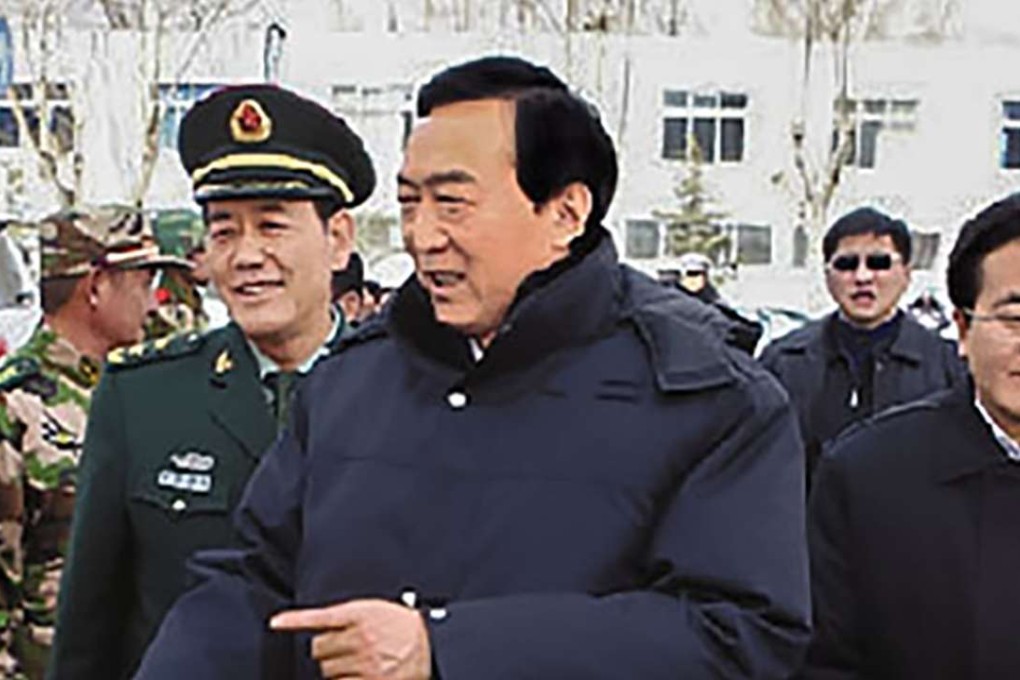Passports taken, more police ... new party boss Chen Quanguo acts to tame Xinjiang with methods used in Tibet
24/7 police surveillance and spying neighbours are familiar to residents of Chen Quanguo’s last post

Just three months after former Tibet party boss Chen Quanguo took up his new post in Xinjiang, the far western frontier is implementing new security and surveillance measures – policies its Tibetan neighbours to the south are only too familiar with.
Since October, residents in many parts of the Xinjiang Uygur autonomous region, both the predominantly Muslim Uygurs and the Han, have been told to hand over their passports to local police for safekeeping, according to police notices circulating online and residents’ complaints on social media.
Those wishing to travel abroad had to first seek permission from the authorities before reclaiming their passports, the notices said.

In addition, to strengthen everyday policing, a sprawling net of “convenience police stations” has been built across cities and rural areas, with government websites and official media boasting of their opening.
These one- or two-storey concrete structures are stocked with wheelchairs, first aid kits, repair tools, umbrellas and even phone chargers for public use. They also come equipped with surveillance cameras and guards on 24-hour “seamless” patrols and can be quickly turned into checkpoints if needed.